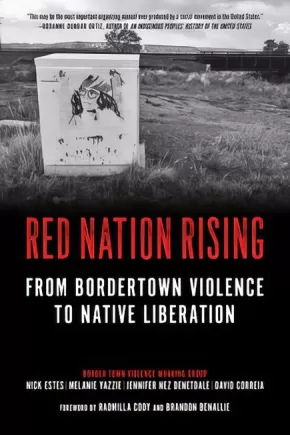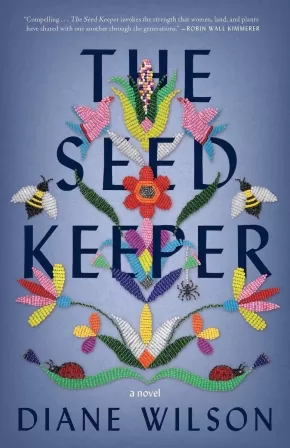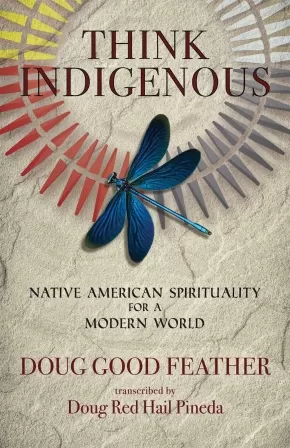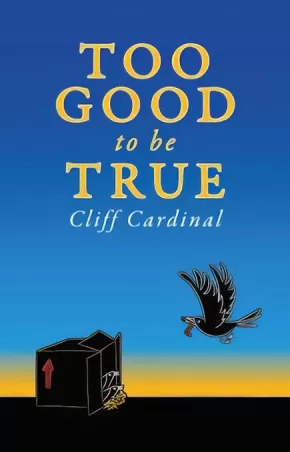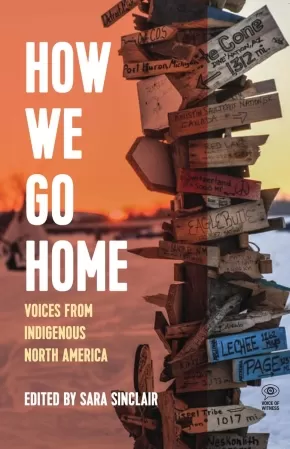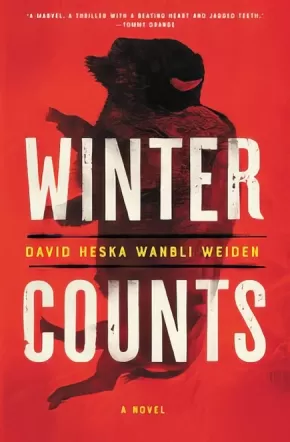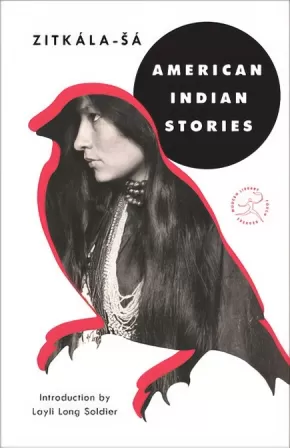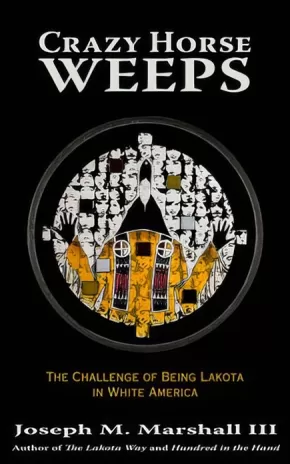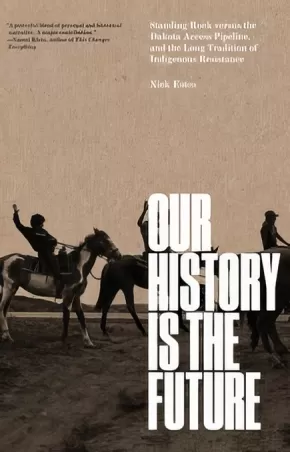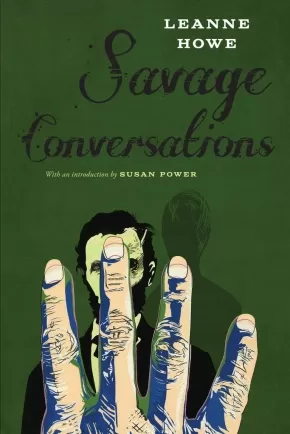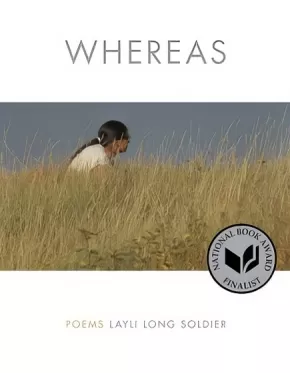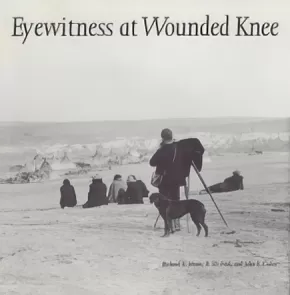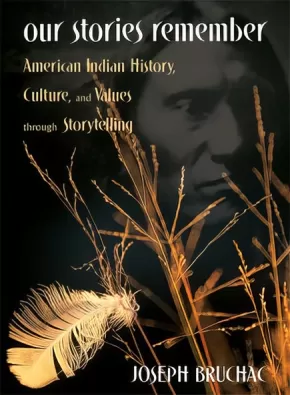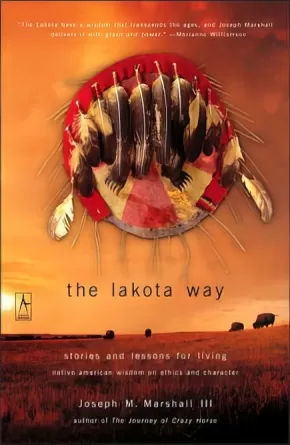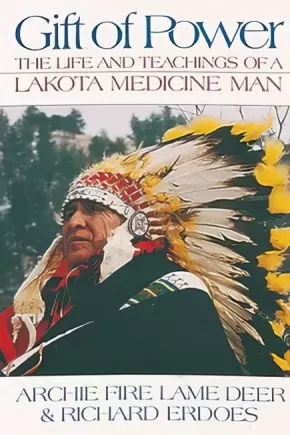Sioux
Synopsis:
Red Nation Rising is the first book ever to investigate and explain the violent dynamics of bordertowns. Bordertowns are white-dominated towns and cities that operate according to the same political and spatial logics as all other American towns and cities. The difference is that these settlements get their name from their location at the borders of current-day reservation boundaries, which separate the territory of sovereign Native nations from lands claimed by the United States.
Bordertowns came into existence when the first US military forts and trading posts were strategically placed along expanding imperial frontiers to extinguish indigenous resistance and incorporate captured indigenous territories into the burgeoning nation-state. To this day, the US settler state continues to wage violence on Native life and land in these spaces out of desperation to eliminate the threat of Native presence and complete its vision of national consolidation “from sea to shining sea.” This explains why some of the most important Native-led rebellions in US history originated in bordertowns and why they are zones of ongoing confrontation between Native nations and their colonial occupier, the United States.
Despite this rich and important history of political and material struggle, little has been written about bordertowns. Red Nation Rising marks the first effort to tell these entangled histories and inspire a new generation of Native freedom fighters to return to bordertowns as key front lines in the long struggle for Native liberation from US colonial control. This book is a manual for navigating the extreme violence that Native people experience in reservation bordertowns and a manifesto for indigenous liberation that builds on long traditions of Native resistance to bordertown violence.
Reviews
“The authors of this brilliant exposition on bordertown violence are no ordinary academics, although academia would benefit from having more faculty scholars such as these. They are also master organizers, a part of a network of indigenous and other community organizers in Indian Country fueling the process of decolonization of Native lands and communities. Bordertown violence is as old as US colonization of the continent itself, and it persists today in the towns and cities that border Native reservations and communities all over US-claimed territory and is replicated in even more distant cities that have large Native populations, many of whom are homeless. This may be the most important organizing manual ever produced by a social movement in the United States.”—Roxanne Dunbar-Ortiz, author of An Indigenous Peoples’ History of the United States
“The borders racking our world are in constant motion and, like the explosive grinding of tectonic plates, the violence of this movement and resistance to it emerges most sharply at the edges. This essential volume brings together militant intellectuals to provide an accessible introduction to the violent encirclement of indigenous communities, and to provide crucial concept-weapons to deepen ongoing collective resistance.” —George Ciccariello-Maher, author of Decolonizing Dialectics
“A remarkable body of work that effectively weaves long overdue native scholarship and historical analysis of settler colonialism with direct and timely frontline reports on the continuing bordertown wars and conflicts in occupied native territories. Offers a comprehensive framework for advancing present and future indigenous resistance and liberation struggles.”—John Redhouse (Diné)
Additional Information
176 pages | 6.00" x 9.00" | Paperback
Synopsis:
A haunting novel spanning several generations, The Seed Keeper follows a Dakota family’s struggle to preserve their way of life, and their sacrifices to protect what matters most.
Rosalie Iron Wing has grown up in the woods with her father, Ray, a former science teacher who tells her stories of plants, of the stars, of the origins of the Dakota people. Until, one morning, Ray doesn’t return from checking his traps. Told she has no family, Rosalie is sent to live with a foster family in nearby Mankato—where the reserved, bookish teenager meets rebellious Gaby Makespeace, in a friendship that transcends the damaged legacies they’ve inherited.
On a winter’s day many years later, Rosalie returns to her childhood home. A widow and mother, she has spent the previous two decades on her white husband’s farm, finding solace in her garden even as the farm is threatened first by drought and then by a predatory chemical company. Now, grieving, Rosalie begins to confront the past, on a search for family, identity, and a community where she can finally belong. In the process, she learns what it means to be descended from women with souls of iron—women who have protected their families, their traditions, and a precious cache of seeds through generations of hardship and loss, through war and the insidious trauma of boarding schools.
Weaving together the voices of four indelible women, The Seed Keeper is a beautifully told story of reawakening, of remembering our original relationship to the seeds and, through them, to our ancestors.
Reviews
“With compelling characters and images that linger long after the final page is turned, The Seed Keeper invokes the strength that women, land, and plants have shared with one another through the generations.”—Robin Wall Kimmerer, author of Braiding Sweetgrass: Indigenous Wisdom, Scientific Knowledge, and the Teachings of Plants
“As seeds are a gift from one generation to another, the song and the word of the seeds return to us, reminding us of our covenant, and also of the promise of love and rebirth. Always, I remember the Zapatista proverb ‘They thought they buried us, they forgot that we were seeds.’ That we are, and Diane Wilson’s narrative of intergenerational loss and rebirth fills my heart with gratitude.”—Winona LaDuke, author of Recovering the Sacred: The Power of Naming and Claiming
“A gracefully told story of continuity through seeds saved and nurtured by Dakota women, The Seed Keeper is lush and sustaining—a read that feeds heart and spirit in the same way as do the gardens that are their legacy.”—Linda LeGarde Grover, author of Onigamiising: Seasons of an Ojibwe Year
Additional Information
440 pages | 5.50" x 8.50"
Synopsis:
A guide to integrating indigenous thinking into modern life for a more interconnected and spiritual relationship with our fellow beings, Mother Earth, and the natural ways of the universe.
With each generation, we have drifted further and further away from our ability to recognize and connect with the source of our original design. In this modern world, we spend our attention in ways that benefit the powers that be, and not ourselves or the earth.
This book's intention is not to teach you to "be Native American," but instead to use the indigenous culture of the Lakota to help you connect with your own indigenous roots and help you remember your ancestral knowing that all beings are divinely connected.
Thinking indigenously centers around three concepts:
1) The way of the seven generations--conscious living
2) The way of the buffalo--mindful consumption
3) The way of the village--collective impact
Author Doug Good Feather, with Doug Pineda, shares the knowledge that has been handed down through his Lakota elders to help you connect with your purpose in life, personal power, and place in this interconnected web with Spirit, Mother Earth, and humanity as a whole.
Additional Information
176 pages | 5.50" x 8.50"
Synopsis:
A new dark comedy about the lies we tell each other in order to make the best of a desperate situation.
Maria and her kids—Lisa, a pregnant teenager, and Jude, an excitable preteen—are on the run following the murder of Lisa’s rapist. As the police close in, Maria is determined to give her kids a last supper that prepares them for everything they’re going to need to survive in the world without her.
Reviews
“A darkly comic exploration of family relationships, the power of storytelling, and what it means to have a home.” — Allison Gerson, Mooney on Theatre
“You have to appreciate material that doesn’t trap its characters in victimhood.” — Radheyan Simonpillai, NOW Magazine
“This captivating tale of an off-grid mother and her desperate kids solidifies Cardinal as one of the most talented and intriguing writers in the country.” — Glen Sumi, NOW Magazine
Educator Information
Casting: 2 f, 1 m
Duration: 75 minutes
Additional Information
96 pages | 5.37" x 8.38" | Paperback
Synopsis:
In myriad ways, each narrator's life has been shaped by loss, injustice, and resilience--and by the struggle of how to share space with settler nations whose essential aim is to take all that is Indigenous.
Hear from Jasilyn Charger, one of the first five people to set up camp at Standing Rock, which kickstarted a movement of Water Protectors that roused the world; Gladys Radek, a survivor of sexual violence whose niece disappeared along Canada's Highway of Tears, who became a family advocate for the National Inquiry into Missing and Murdered Indigenous Women and Girls; and Marian Naranjo, herself the subject of a secret radiation test while in high school, who went on to drive Santa Clara Pueblo toward compiling an environmental impact statement on the consequences of living next to Los Alamos National Laboratory. Theirs are stories among many of the ongoing contemporary struggles to preserve Indigenous lands and lives--and of how we go home.
Reviews
“How We Go Home is a testament to modern-day Indigenous revitalization, often in the face of the direst of circumstances. Told as firsthand accounts on the frontlines of resistance and resurgence, these life stories inspire and remind that Indigenous life is all about building a community through the gifts we offer and the stories we tell.”— Niigaan Sinclair, associate professor, Department of Native Studies at the University of Manitoba and columnist, Winnipeg Free Press
“The voices of How We Go Home are singing a chorus of love and belonging alongside the heat of resistance, and the sound of Indigenous life joyfully dances off these pages.”—Leanne Betasamosake Simpson, author of As We Have Always Done
“How We Go Home confirms that we all have stories. These stories teach us history, morality, identity, connection, empathy, understanding, and self-awareness. We hear the stories of our ancestors and they tell us who we are. We hear the stories of our heroes and they tell us what we can be." —Honourable Senator Murray Sinclair
Educator Information
Table of Contents
Editor’s Notes
Introduction (Sara Sinclair)
Executive Director’s Note (Mimi Lok)
Map
Gladys Radek, Terrace, Gitxsan / Wet’suwet’en First Nations—“When Tamara went missing, it took the breath out of me.”
Jasilyn Charger, Cheyenne River Sioux—“My son’s buried by the river. . . . I vowed to him that he’s gonna be safe, that no oil was gonna touch him.”
Wizipan Little Elk, Rosebud Lakota Tribe—“On the reservation, you have the beauty of the culture and our traditional knowledge contrasted with the reality of poverty.”
Geraldine Manson, Snuneymuxw First Nation—The nurse was trying to get me to sign a paper to put our baby, Derrick, up for adoption.”
Robert Ornelas, New York City, Lipan Apache / Ysleta del Sur Pueblo—“A part of the soul sickness for me was being ashamed . . . what we were being taught about Indians was so minimal and so negative.”
Ashley Hemmers, Fort Mojave Indian Tribe—“I didn’t work my ass off to get to Yale to be called a squaw.”
Ervin Chartrand, Selkirk, Métís/Salteaux—“They said I fit the description because I looked like six other kids with leather vests and long hair who looked Indian.”
James Favel, Winnipeg, Peguis First Nation “You’re a stakeholder because you’ve got to walk these streets every day.”
Marian Naranjo, Santa Clara Pueblo—“Indigenous peoples’ reason for being is to be the caretakers of Creator’s gifts—of the air, the water, the land.”
Blaine Wilson, Tsartlip First Nation “When I was twenty-five, thirty, there was more salmon and I was fishing every other day. Now I’m lucky to go once a week.”
Althea Guiboche, Winnipeg, Métis/Ojibwe/Salteaux “I had three babies under three years old and I was homeless.”
Vera Styres, Six Nations of the Grand River, Mohawk/Tuscarora“I was a ‘scabby, dirty little Indian.’”
Glossary
Historical Timeline of Indigenous North America
Essay: 1. The Trail of Broken Promises: US and Canadian Treaties with First Nations
Essay 2: “Indigenous Perspectives on Intergenerational Trauma”: An Interview with Johnna James
Essay 3: Indigenous Resurgence
Ten Things You Can Do
Further Reading
Acknowledgements
Additional Information
331 pages | 6.00" x 9.00" | Paperback
Synopsis:
A groundbreaking thriller about a vigilante on a Native American reservation who embarks on a dangerous mission to track down the source of a heroin influx.
Virgil Wounded Horse is the local enforcer on the Rosebud Indian Reservation in South Dakota. When justice is denied by the American legal system or the tribal council, Virgil is hired to deliver his own punishment, the kind that’s hard to forget. But when heroin makes its way into the reservation and finds Virgil’s nephew, his vigilantism suddenly becomes personal. He enlists the help of his ex-girlfriend and sets out to learn where the drugs are coming from, and how to make them stop.
They follow a lead to Denver and find that drug cartels are rapidly expanding and forming new and terrifying alliances. And back on the reservation, a new tribal council initiative raises uncomfortable questions about money and power. As Virgil starts to link the pieces together, he must face his own demons and reclaim his Native identity. He realizes that being a Native American in the twenty-first century comes at an incredible cost.
Winter Counts is a tour-de-force of crime fiction, a bracingly honest look at a long-ignored part of American life, and a twisting, turning story that’s as deeply rendered as it is thrilling.
Reviews
“Winter Counts is a marvel. It’s a thriller with a beating heart and jagged teeth. This book is a brilliant meditation on power and violence, and a testament to just how much a crime novel can achieve. Weiden is a powerful new voice. I couldn’t put it down.” —Tommy Orange, author of There There
Additional Information
336 pages | 6.00" x 9.00"
Synopsis:
A groundbreaking Dakota author and activist chronicles her refusal to assimilate into nineteenth-century white society and her mission to preserve her culture—with an introduction by Layli Long Soldier, winner of the National Book Critics Circle Award and the PEN/Jean Stein Book Award for Whereas.
Bright and carefree, Zitkála-Šá grows up on the Yankton Sioux reservation in South Dakota with her mother until Quaker missionaries arrive, offering the reservation’s children a free education. The catch: They must leave their parents behind and travel to Indiana. Curious about the world beyond the reservation, Zitkála-Šá begs her mother to let her go—and her mother, aware of the advantages that an education offers, reluctantly agrees.
But the missionary school is not the adventure that Zitkála-Šá expected: The school is a strict one, her long hair is cut short, and only English is spoken. She encounters racism and ridicule. Slowly, Zitkála-Šá adapts to her environment—excelling at her studies, winning prizes for essay-writing and oration. But the price of success is estrangement from her cultural roots—and is it one she is willing to pay?
Combining Zitkála-Šá’s childhood memories, her short stories, and her poetry, American Indian Stories is the origin story of an activist in the making, a remarkable woman whose extraordinary career deserves wider recognition.
Additional Information
160 pages | 5.18" x 8.00"
Synopsis:
For Lakota, Dakota, and Nakota people, historical trauma, chronically underfunded federal programs, and broken promises on the part of the US government have resulted in gaping health, educational, and economic disparities compared to the general population. Crazy Horse Weeps offers a thorough historical overview of how South Dakota reservations have wound up in these tragic circumstances, showing how discrimination, a disorganized tribal government, and a devastating dissolution of Lakota culture by the US government have transformed the landscape of Native life. Yet these extraordinary challenges, Marshall argues, can be overcome. Focusing on issues of identity and authenticity, he uses his extensive experience in traditional Lakota wisdom to propose a return to traditional tribal values and to outline a plan for a hopeful future.
Additional Information
|
Synopsis:
How two centuries of Indigenous resistance created the movement proclaiming “Water is life”.
In 2016, a small protest encampment at the Standing Rock Reservation in North Dakota, initially established to block construction of the Dakota Access oil pipeline, grew to be the largest Indigenous protest movement in the twenty-first century. Water Protectors knew this battle for native sovereignty had already been fought many times before, and that, even after the encampment was gone, their anticolonial struggle would continue. In Our History Is the Future, Nick Estes traces traditions of Indigenous resistance that led to the #NoDAPL movement. Our History Is the Future is at once a work of history, a manifesto, and an intergenerational story of resistance.
Reviews
“Embedded in the centuries-long struggle for Indigenous liberation resides our best hope for a safe and just future for everyone on this planet. Few events embody that truth as clearly as the resistance at Standing Rock, and the many deep currents that converged there. In this powerful blend of personal and historical narrative, Nick Estes skillfully weaves together transformative stories of resistance from these front lines, never losing sight of their enormous stakes. A major contribution.”—Naomi Klein, author of This Changes Everything
“In Our History Is the Future historian Nick Estes tells a spellbinding story of the 10 month Indigenous resistance at Standing Rock in 2016, animating the lives and characters of the leaders and organizers, emphasizing the powerful leadership of the women. Alone this would be a brilliant analysis of one of the most significant social movements of this century. But embedded in the story and inseparable from it is the centuries-long history of the Oceti Sakowin’ resistance to United States’ genocidal wars and colonial institutions. And woven into these entwined stories of Indigenous resistance is the true history of the United States as a colonialist state and a global history of European colonialism. This book is a jewel—history and analysis that reads like the best poetry—certain to be a classic work as well as a study guide for continued and accelerated resistance.”—Roxanne Dunbar Ortiz, author of An Indigenous Peoples’ History of the United States
“When state violence against peaceful protest at Standing Rock became part of the national consciousness, many noticed Native people for the first time—again. Our History Is the Future is necessary reading, documenting how Native resistance is met with settler erasure: an outcome shaped by land, resources, and the juggernaut of capitalism. Estes has written a powerful history of Seven Fires resolve that demonstrates how Standing Rock is the outcome of history and the beginning of the future.”—Louise Erdrich, author of the National Book Award winner The Round House
“A touching and necessary manifesto and history featuring firsthand accounts of the recent Indigenous uprising against powerful oil companies … With an urgent voice, Estes reminds us that the greed of private corporations must never be allowed to endanger the health of the majority. An important read about Indigenous protesters fighting to protect their ancestral land and uphold their historic values of clean land and water for all humans.” —Kirkus
“Our History Is the Future is a game-changer. In addition to providing a thorough and cogent history of the long tradition of Indigenous resistance, it is also a personal memoir and homage to the Oceti Sakowin; an entreaty to all their relations that demands the ‘emancipation of the earth.’ Estes continues in the legacy of his ancestors, from Black Elk to Vine Deloria, he turns Indigenous history right-side up as a story of self-defense against settler invasion. In so doing, he is careful and judicious in his telling, working seamlessly across eras, movements, and scholarly literatures, to forge a collective vision for liberation that takes prophecy and revolutionary theory seriously. The book will be an instant classic and go-to text for students and educators working to understand the ‘structure’ undergirding the ‘event’ of the Dakota Access Pipeline. This is what history as Ghost Dance looks like.”—Sandy Grande, author of Red Pedagogy: Native American Social and Political Thought
“Nick Estes is a forceful writer whose work reflects the defiant spirit of the #NoDAPL movement. Our History Is the Future braids together strands of history, theory, manifesto and memoir into a unique and compelling whole that will provoke activists, scholars and readers alike to think deeper, consider broader possibilities and mobilize for action on stolen land.”—Julian Brave Noisecat, 350.org
Additional Information
320 pages | 5.50" x 8.25"
Synopsis:
May 1875: Mary Todd Lincoln is addicted to opiates and tried in a Chicago court on charges of insanity. Entered into evidence is Ms. Lincoln’s claim that every night a Savage Indian enters her bedroom and slashes her face and scalp. She is swiftly committed to Bellevue Place Sanitarium. Her hauntings may be a reminder that in 1862, President Lincoln ordered the hanging of thirty-eight Dakotas in the largest mass execution in United States history. No one has ever linked the two events—until now. Savage Conversations is a daring account of a former first lady and the ghosts that tormented her for the contradictions and crimes on which this nation is founded.
Reviews
"In Savage Conversations, LeAnne Howe experiments with the form of verse drama to tell the history of the Dakhóta resistance to colonization and the mythos surrounding the Lincoln presidency of that same period. The setting is the asylum to which Mary Todd Lincoln was involuntarily committed ten years after the death of her husband. The characters are the First Lady, whose racism against Native Americans is well-documented, the “Savage Indian” she claims to see and be tortured by nightly, and a rope. The story is a reckoning of hauntings and unprosecuted crimes, an attempt at imagining some way to live with an unbearable history of human rights abuses and genocide." - Kathryn Nuernberger, Kenyon Review
“In May of 1875, Mary Todd Lincoln is confined to an insane asylum. There, she is haunted by a ‘Savage Indian’ who scalps her nightly and sews her eyes open. In Howe's telling, the specter haunting the widowed First Lady is one of the thirty-eight Dakota men, hanged in 1862 by her husband in the largest mass execution in American history. In reading this, I was blown away. Unmoored. Sent spiraling adrift on gusts of wind.” —Rachel S, Harvard Book Store
“Part fever dream, part extended meditation on madness, Howe’s Savage Conversations is a bracing commentary on the nature of guilt and grief.”—Historical Novel Society
“Savage Conversations takes place somewhere in between its sources, between sanity and madness, between then and now, between the living and the dead. It pushes past the limitations of textual sources for telling indigenous history and accounts of insanity.”—Barrelhouse Reviews
“LeAnne Howe’s words are to savor, contemplate, and horrify. Savage Conversations explodes with the stench of guilt and insanity that undergirds the American story, whispered through a personal, familial, national, and supernatural drama revelatory in every sense. Howe’s uncanny images will long haunt readers, just as the Dakota 38 linger in land and memory, both offering a testament to the violent entanglements of past and present.” —Philip J. Deloria
“Savage Conversations invokes our own racial conflict and probes America’s psyche, its struggle to reconcile its colonialist values, indeed its white supremacy, with its multi-ethnic cultures and populations. . . . Through the masterly dramatic management of Mrs. Lincoln’s disturbing and chilling obsessions, Howe shows that there is no escape from the yesterday’s paradigms of power without a true reckoning with the injustices that set the stage for our troubled social landscape.”—On the Seawall
“Howe’s book powerfully contributes to our understanding and re-thinking of a moment in time that we are still grappling with today. In the wake of recent movements to remove Confederate monuments as we work to present the truths of history, Howe’s book directs our attention to a violent event that has not been adequately acknowledged. Through experimental form, Howe refracts a moment of history that readers simply cannot forget, that they will inevitably carry with them long after reading the last page.” —The Carolina Quarterly
Educator Information
Experimental verse drama.
Additional Information
144 pages | 5.00" x 7.50"
Synopsis:
WHEREAS her birth signaled the responsibility as mother to teach what it is to be Lakota therein the question: What did I know about being Lakota? Signaled panic, blood rush my embarrassment. What did I know of our language but pieces? Would I teach her to be pieces? Until a friend comforted, Don’t worry, you and your daughter will learn together. Today she stood sunlight on her shoulders lean and straight to share a song in Diné, her father’s language. To sing she motions simultaneously with her hands; I watch her be in multiple musics. —from “WHEREAS Statements”
WHEREAS confronts the coercive language of the United States government in its responses, treaties, and apologies to Native American peoples and tribes, and reflects that language in its officiousness and duplicity back on its perpetrators. Through a virtuosic array of short lyrics, prose poems, longer narrative sequences, resolutions, and disclaimers, Layli Long Soldier has created a brilliantly innovative text to examine histories, landscapes, her own writing, and her predicament inside national affiliations. “I am,” she writes, “a citizen of the United States and an enrolled member of the Oglala Sioux Tribe, meaning I am a citizen of the Oglala Lakota Nation—and in this dual citizenship I must work, I must eat, I must art, I must mother, I must friend, I must listen, I must observe, constantly I must live.” This strident, plaintive book introduces a major new voice in contemporary literature.
Additional Information
114 pages | 7.04" x 8.84"
Synopsis:
On a wintry day in December 1890, near a creek named Wounded Knee on the Pine Ridge Reservation in South Dakota, the Seventh Cavalry of the U.S. Army opened fire on an encampment of Sioux Indians. This assault claimed more than 250 lives, including those of many Indian women and children. The tragedy at Wounded Knee has often been written about, but the existing photographs have received little attention until now.
Eyewitness at Wounded Knee brings together and assesses for the first time some 150 photographs that were made before and immediately after the massacre. Present at the scene were two itinerant photographers, George Trager and Clarence Grant Morelodge, whose work has never before been published. Accompanying commentaries focus on both the Indian and the military sides of the story. Richard E. Jensen analyzes the political and economic quagmire in which the Sioux found themselves after 1877. R. Eli Paul considers the army’s role at Wounded Knee. John E. Carter discusses the photographers and also the reporters and relic hunters who were looking to profit from the misfortune of others.
For this Bison Books edition each image has been digitally enhanced and restored, making the photographs as compelling as the event itself. Heather Cox Richardson tells the story behind the endeavor to present a meaningful account of this significant historical event.
Synopsis:
Within the pages of this introduction to American Indian history, culture, and values, readers will gain insight into the totality of Native American experience and culture. Each chapter in the book explores a particular shared cultural value or world view through both traditional stories and Bruchac's commentary. A diverse range of Native groups is included-Tlingit, Navajo, Cree, Abenaki, Yupik, Seminole, Sioux, Cherokee, and many more.
Synopsis:
Joseph M. Marshall’s thoughtful, illuminating account of how the spiritual beliefs of the Lakota people can help us all lead more meaningful, ethical lives.
Rich with storytelling, history, and folklore, The Lakota Way expresses the heart of Native American philosophy and reveals the path to a fulfilling and meaningful life. Joseph Marshall is a member of the Sicunga Lakota Sioux and has dedicated his entire life to the wisdom he learned from his elders. Here he focuses on the twelve core qualities that are crucial to the Lakota way of life--bravery, fortitude, generosity, wisdom, respect, honor, perseverance, love, humility, sacrifice, truth, and compassion. Whether teaching a lesson on respect imparted by the mythical Deer Woman or the humility embodied by the legendary Lakota leader Crazy Horse, The Lakota Way offers a fresh outlook on spirituality and ethical living.
Additional Information
256 pages | 4.88" x 7.76"
Synopsis:
With surprising candor, Archie Fire Lame Deer describes the magic and power of the Native American spirit life. Archie's compelling narrative recaptures his boyhood years under the tutelage of his medicine-man grandfather on a South Dakota farm. We follow him from Catholic school runaway to Army misfit, from bartender to boozer, from Hollywood stuntman to chief rattlesnake catcher of the state of South Dakota. And we exult with him when he comes home to the world of spirit.

